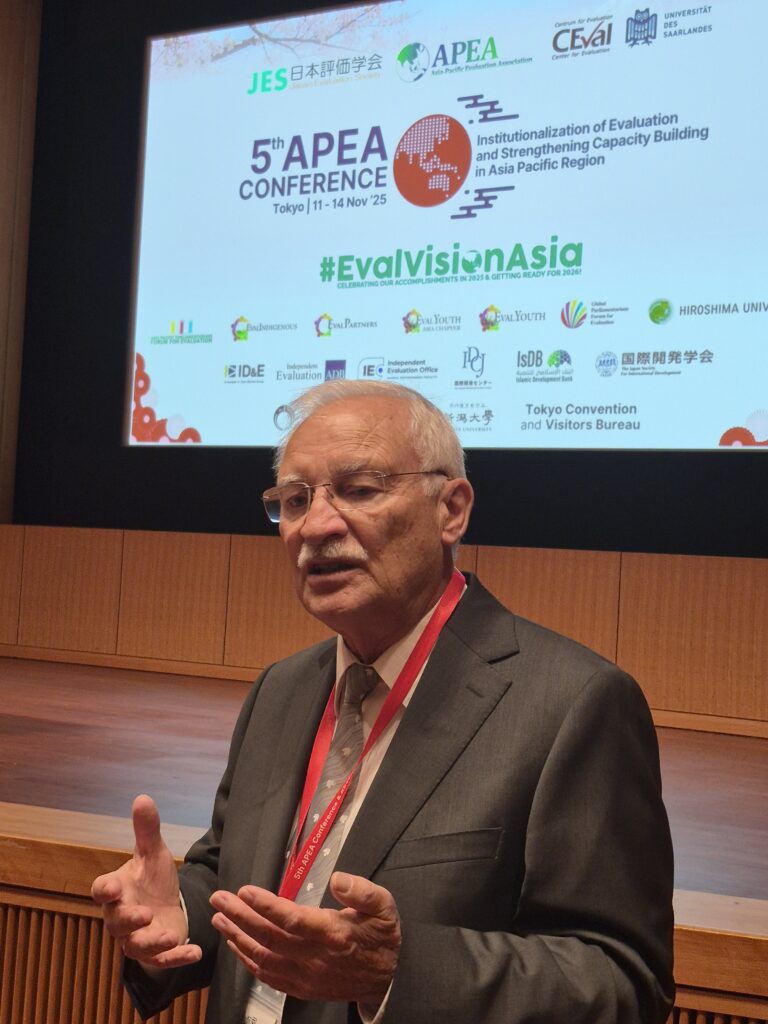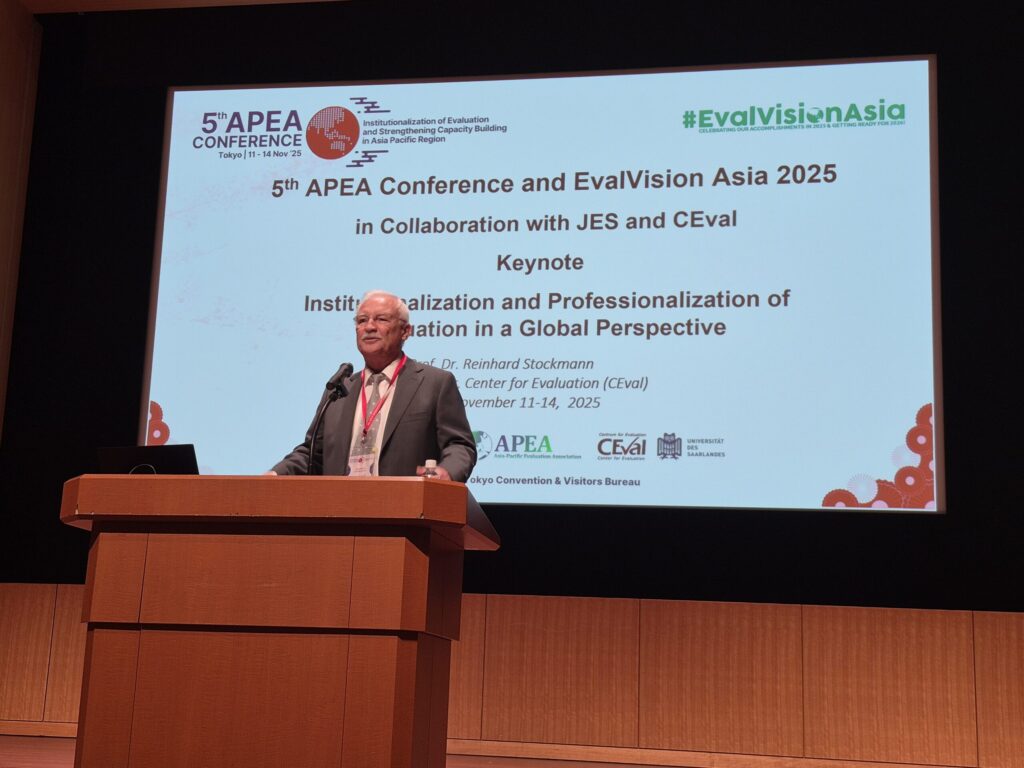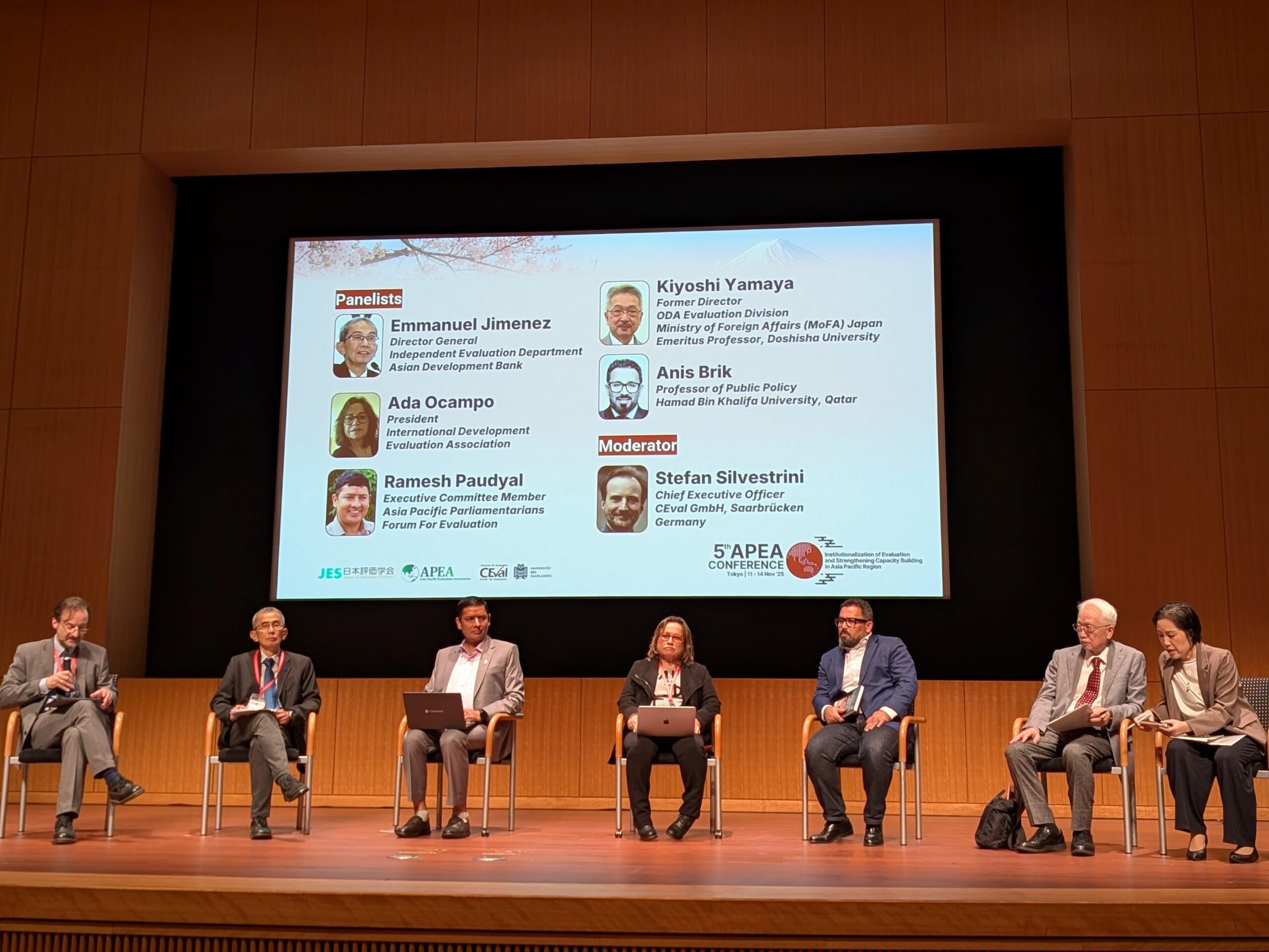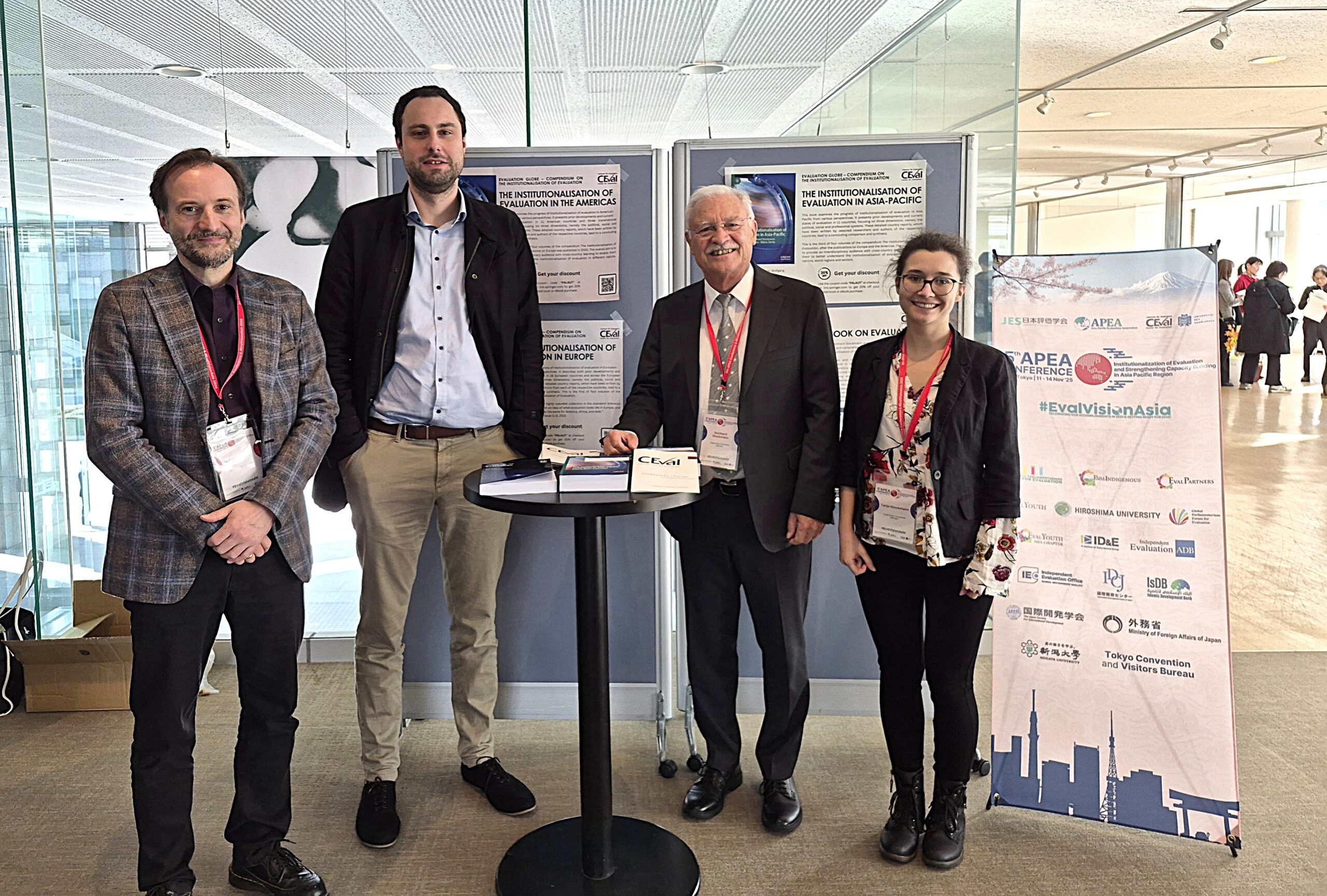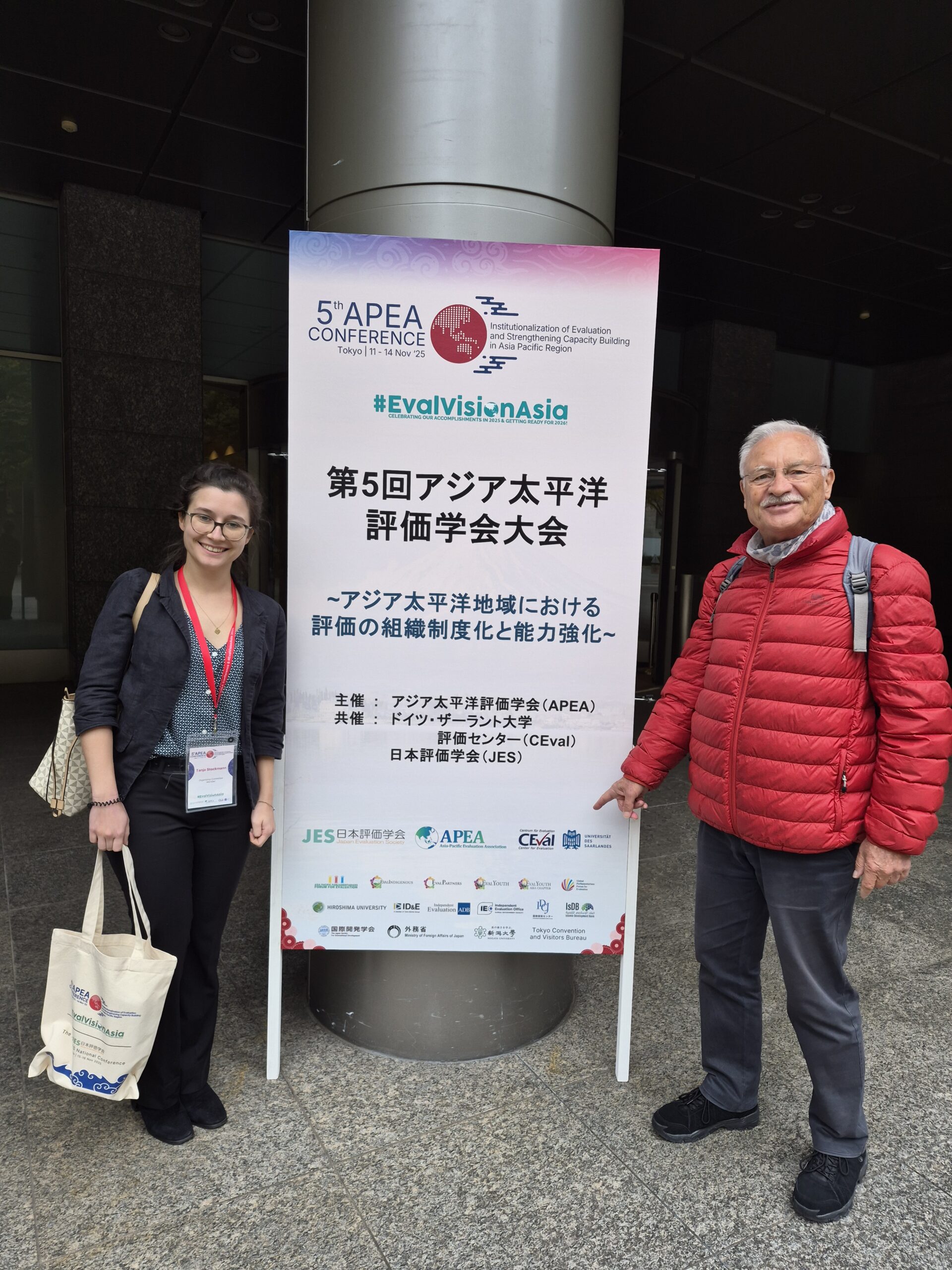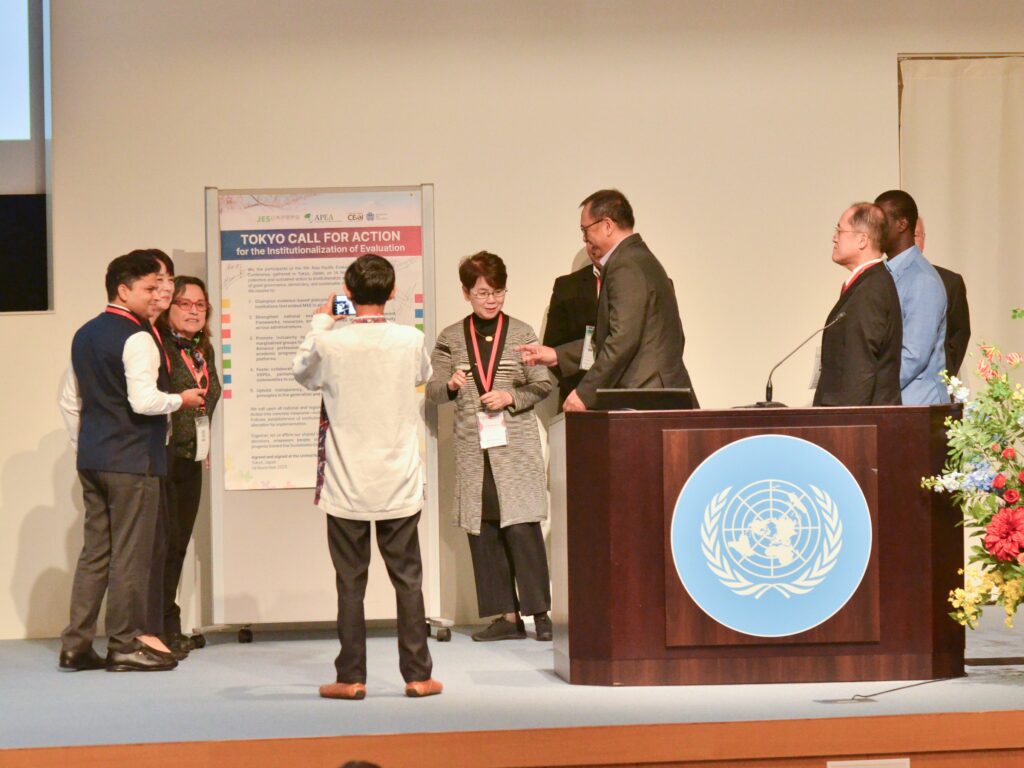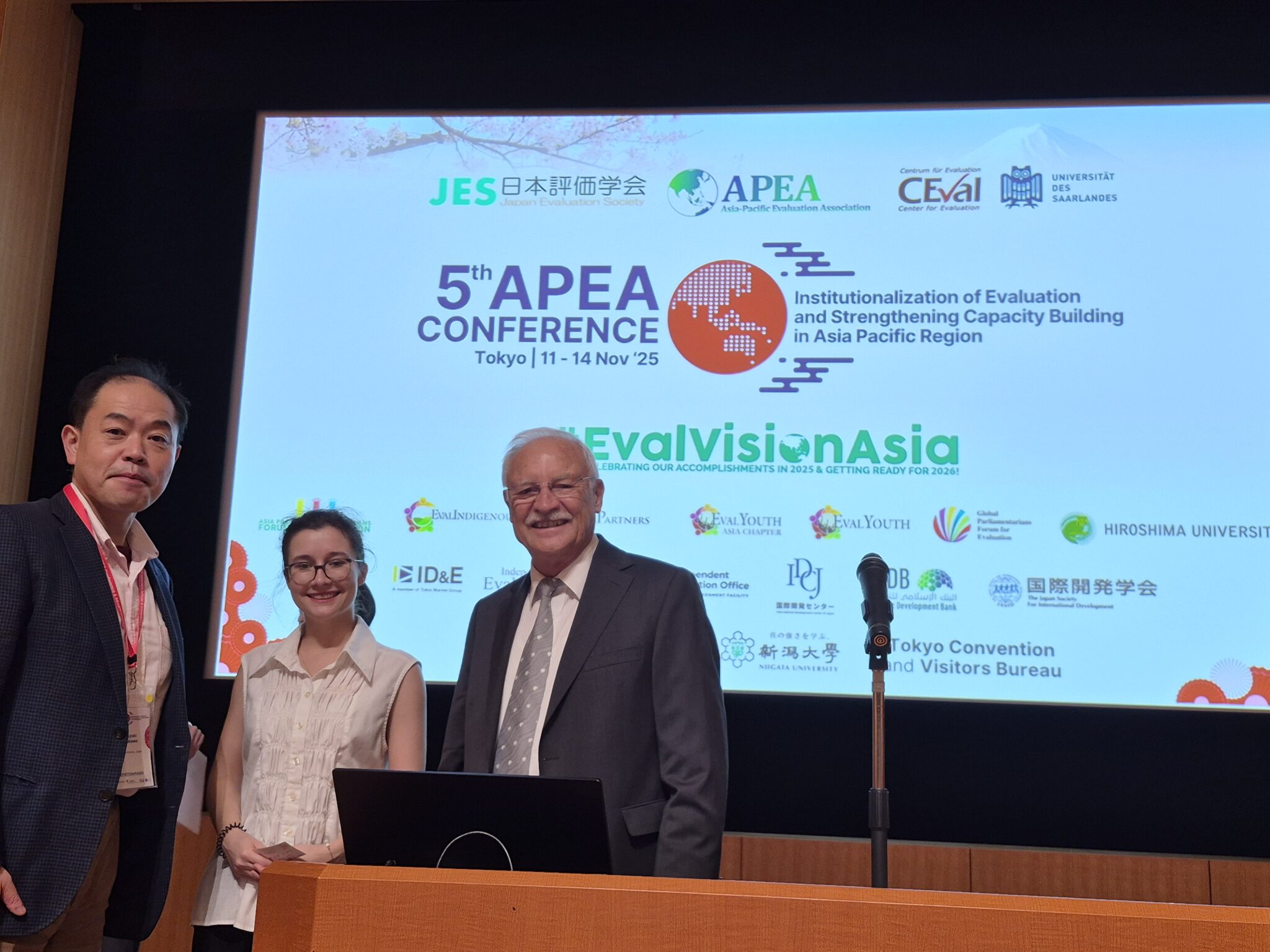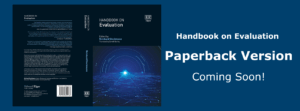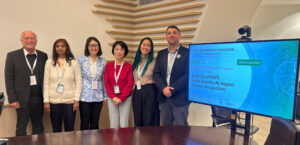Adoption of an action plan to promote the use of evaluation
Over the past ten years, CEval has examined the institutionalization of evaluation in 50 countries worldwide. The results of the research project were presented for the first time at an international conference in Tokyo in a keynote speech by Prof. Dr. Reinhard Stockmann (Saarland University). The event, which was organized by the Asia-Pacific Evaluation Association, the Japan Evaluation Society, and the Center for Evaluation, was attended by over 250 people from 38 countries.
The focus was on the factors that hinder and promote the institutionalization and use of evaluation at the national level. One clear finding is that it is primarily political institutions such as ministries, government agencies, and authorities that determine evaluation questions, evaluation goals, and financial budgets. This means that the demand for evaluation depends primarily on political institutions, without exception in all countries surveyed worldwide. Civil society organizations, on the other hand, play no role in the institutionalization of evaluation at the national level, as they neither demand evaluation to any significant extent nor request it from government institutions or parliaments. Even parliaments themselves are not drivers of evaluation.
One of the most important demands of the conference participants was therefore that evaluation associations should have a greater political influence in order to promote evaluation. To this end, it is necessary to develop formats that can be used to convince governments and parliaments of the usefulness of evaluation for their work. It is recommended that important social actors, such as academia, foundations, political parties, trade unions, etc., be engaged to place pressure on governments to utilize evaluations. This should be done not only for control purposes, but also as learning tools to make programs and policies more effective, efficient, and sustainable. In addition, evaluation should also strengthen democratic governance by publishing evaluation results and making them available to the public, thereby facilitating political dialogue.
As a result of the conference, a “Tokyo Call for Action for the Institutionalization of Evaluation” was adopted, which is essentially based on the findings of the CEval Evaluation GLOBE project and aims to promote the institutionalization of evaluation worldwide in the coming years.
